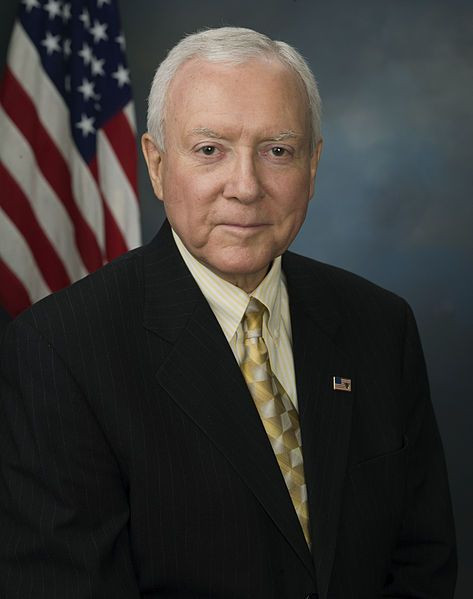
On Thursday, the Senate passed what might be the first major bipartisan cut to Obamacare's sweeping transformation of the American health care system. The Hatch-Klobuchar amendment, so named for cosponsors Orrin Hatch, R-Utah, and Amy Klobuchar, D-Minn., calls for the repeal of the medical device tax section of the Affordable Care Act.
The amendment was so popular throughout the legislative body, it made for a number of odd bedfellows as co-sponsors: Conservative Jon Cornyn, R-Texas, and liberal progressive Sen. Al Franken, D-Minn., the former "Saturday Night Live" comedian, found themselves agreeing on the resolution. Additionally, press throughout the Keystone State reacted to the news that the commonwealth's two polar opposite Senators, conservative Republican Pat Toomey, and Deomocrat Bob Casey, Jr., both supported the legislation.
In response to his amendment passing 79-20, Hatch said he was energized to see bipartisan opposition for the new 2.3 percent tax.
"Senate [members] spoke loudly and clearly that this tax ... must go," Hatch said. The Washington Examiner reported that Franken went so far as to say he spoke to President Barack Obama on the issue and is confident that he would sign off on the repeal if it reached his desk.
However, the Philadelphia Inquirer supposed the Senate repeal was "largely symbolic" as it becomes a nonbinding part of a Senate Democratic budget, which would have slim chances of passing the House. But, the fact that the House passed similar standalone legislation means the notion of repeal of the medical device tax may eventually come to fruition in some form.
The medical device tax would not likely be a cost covered by those companies involved, similar to the prediction that a number of other major initiatives in Obamacare that would see extra costs and restrictions passed down from physician to patient. A Syracuse Post-Standard article reported the tax, if enacted as planned, would cause medical device manufacturer Welch Allyn to lay off 10 percent of its workforce including an estimated 45 in upstate New York.
In Pennsylvania, a state that voted for Obama in 2012 yet has a complete Republican majority in its capital of Harrisburg, would also feel major effects from such legislation. Toomey noted that the Delaware Valley region is home to a number of companies that would be affected. The contrast between representation at the state and federal level in the state may indicate why both Senators supported the legislation, as the electorate on both sides of the aisle likely see reason to cut the provision from Obamacare.
A Senate report noted that the United States is the world's top net exporter of medical devices, valued at $5.4 billion in revenue. The news of the legislation comes as British drug manufacturer AstraZeneca will be cutting over 5,000 jobs over the next year. The company also has a substantial presence in the United States as well.
Additionally, a report by the Washington Times stated that such a tax would affect nonhuman patients as well. Veterinary bills would likely increase because the tax would also apply to the specialized instruments used in routine pet checkups.
© 2025 Latin Times. All rights reserved. Do not reproduce without permission.




